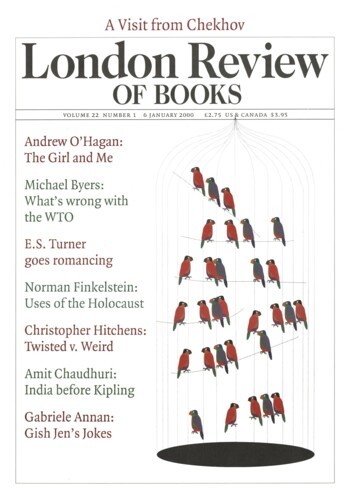A Meeting with Chekhov
Alexander Tikhonov, translated by Tania Alexander, 6 January 2000
Preparations were in full swing for Savva Morozov’s arrival at his estate. The manager, a busy, paunchy little man reminiscent of Mr Pickwick, and known to everyone as ‘Uncle Kostia’, had been busy for two entire weeks frantically scuttling from one end of the large estate to the other – so frantically he hardly knew whether it was day or night. He had plenty to worry about: bridges had to be mended, footpaths repaired; at one end of the estate men were shooting game, at the other they’d been commanded to catch fish in the mountain streams – all in order to have plenty of food ready for Morozov’s arrival. Exhausted, covered in mosquito bites and mud, poor Uncle Kostia only ever managed to get home to the Vsevolod Volnevsky factory in time to grab a night’s sleep. Even his round spectacles, perching precariously on his small nose, were spattered with mud. The outside of the house had to be repainted and everything inside cleaned and polished; the park had to be put in order, manure had to be moved from the stables, and the dogs, of which there were far too many, had to be rounded up and in some cases put down. The idea was to hang their carcasses outside the kitchen door as a warning to the others. The coachman, Chariton, a large man with red hair and the look of a hangman, had been asked to do this, but although he was a bad-tempered fellow he was only able to kill a few of the dogs; the others, sensing trouble, managed to hide. Officially, the new school building was ready, but it still didn’t have any windows or doors.’‘

